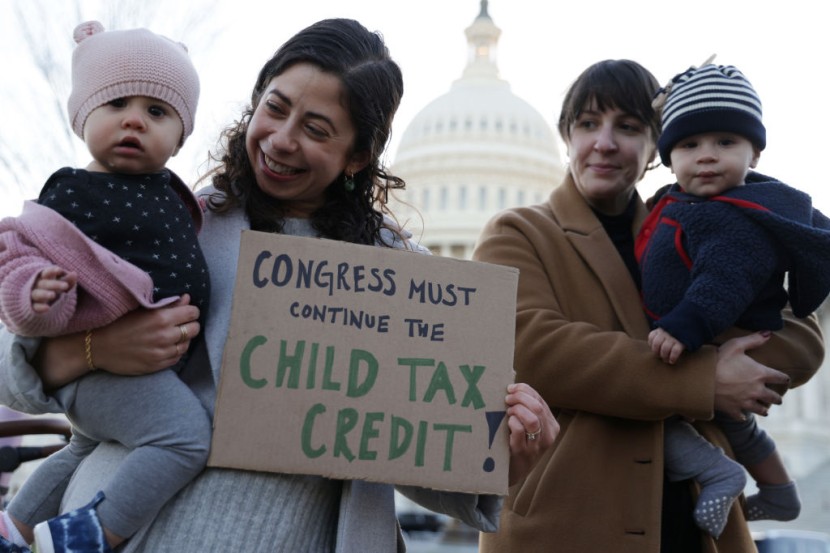
Despite the fact that the United States is progressively recovering from the impacts of the conflict in Ukraine and the COVID-19 outbreak, many residents still require financial assistance.
Families with eligible children are selected for the Child Tax Credit, which provides them with a tax benefit. Parents may claim the Child Tax Credit for each qualified kid who has a valid Social Security number for work in the United States.
Who Qualifies For Child Tax Credit 2023?
This year, the maximum tax credit per qualified child is $2,000 for children under the age of five and $3,000 for children between the ages of six and seventeen. As was the situation in 2022, taxpayers will no longer be able to collect a portion of the credit in advance.
The Child Tax Credit will not be enhanced in 2023, therefore the maximum amount that may be claimed per eligible kid will remain at $2,000, with a maximum return of $1,540. In addition to possessing a valid Social Security number for work in the United States, your child or dependent must be under the age of 17, as per Marca.
Also, they must have resided with you for more than half the year and be reported as a dependant on your tax return. To be eligible for the maximum amount of the Child Tax Credit for each qualified child, you must fulfill all eligibility requirements and have an annual income of less than $200,000, or $400,000 if filing a combined return.
The Expanded Child Tax Credit made its debut in 2021, while families struggled financially due to a pandemic. The program, an expansion of an existing tax credit, provided parents with monthly payments of up to $300 per child per month and a lump sum cash payment at tax-filing time.
It was wildly popular with everyone except Congressional Republicans and the lone Democratic Senator Joe Manchin, who obstructed efforts to extend or reinstate the Expanded CTC after it expired in December of 2021.
Will CTC be Expanded Again?
Since then, Democrats have unsuccessfully attempted to restart the initiative, and after months of delaying and Republican opposition in Congress, they have essentially abandoned the concept. According to research, CTC monthly payments were responsible for pulling up to four million children out of poverty, an enormous accomplishment for a program that was only in effect for six months.
Also, the payments enabled parents to pay for rent, electricity, and household essentials, as well as extracurricular activities for their children, contribute to savings or pay off existing debt. Since its expiration, millions of children have slid back into poverty, parents have struggled to make ends meet in the face of record-high inflation, and food insecurity has once again increased.
In his most recent budget plan, President Joe Biden demonstrated that he is committed to providing for American families. In addition to reviving the Expanded Child Tax Credit program with guaranteed monthly payments, the proposal asks for free universal preschool, the allocation of tens of millions of dollars to early childhood education and development, and a government-paid family and medical leave program.
Per Fatherly, these budget items resemble the President's proposed budget for 2022, with a few adjustments and simplifications to make it more agreeable to Republicans. It is crucial to remember, however, that the Presidential Budget Request is essentially a wish list - items that the President favors and that Congress will evaluate before voting on the next year's real budget.
It seems unlikely that many, if any, of the President's wish list items will survive the House of Representatives voting process, which Republicans retook this year. In the Senate, where Democrats have the majority, conditions are more favorable, but nothing is certain.
The one certain positive is that the CTC and guaranteed monthly family income continue to be Administration priorities, so maybe a bipartisan deal will be reached for the benefit of American families. According to research by the Center on Budget and Policy Priorities, in the state of New York alone in 2021, slightly more than 3,300,000 children, representing 2,011,000 households, received monthly child tax credit payments.
Almost 86% of low-income households in New York who received these payments utilized the funds for essentials such as food, clothes, rent or mortgage payments, and utilities. Adding school fees did neither raise nor reduce the proportion. Low-income households earn less than $35,000 annually.
Amid the ongoing COVID-19 pandemic, New York Governor Kathy Hochul announced in 2022 that the state would allocate $64 million in federal funding to provide one-time payments to residents in need, including those with children or living in multigenerational households, as well as survivors of domestic violence.
The one-time payments were designated to aid struggling families with the cost of diapers, food costs for homes with both children and senior citizens, and housing and relocation support for survivors of domestic abuse. According to AOL, the Pandemic Emergency Assistance Fund was managed by the state Office of Temporary and Disability Assistance and the state Office for the Prevention of Domestic Violence.
Related Article : Child Tax Credit 2023: How to Claim Up to $2,000 Payments Per Child
@YouTube








